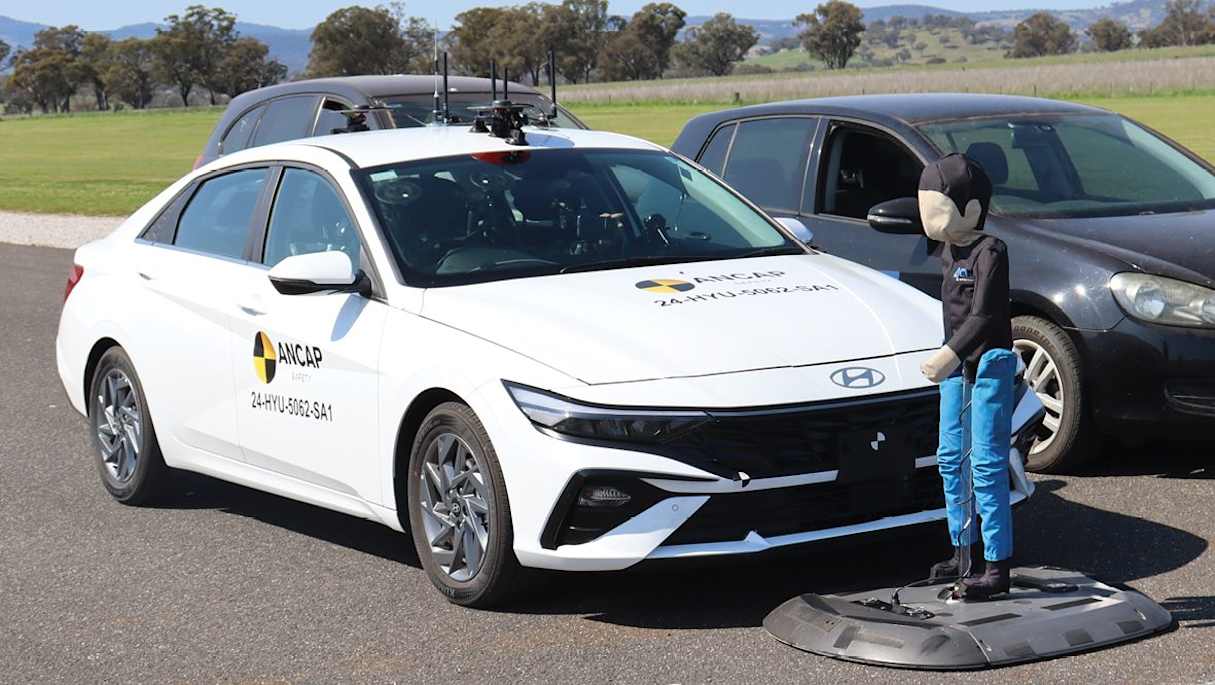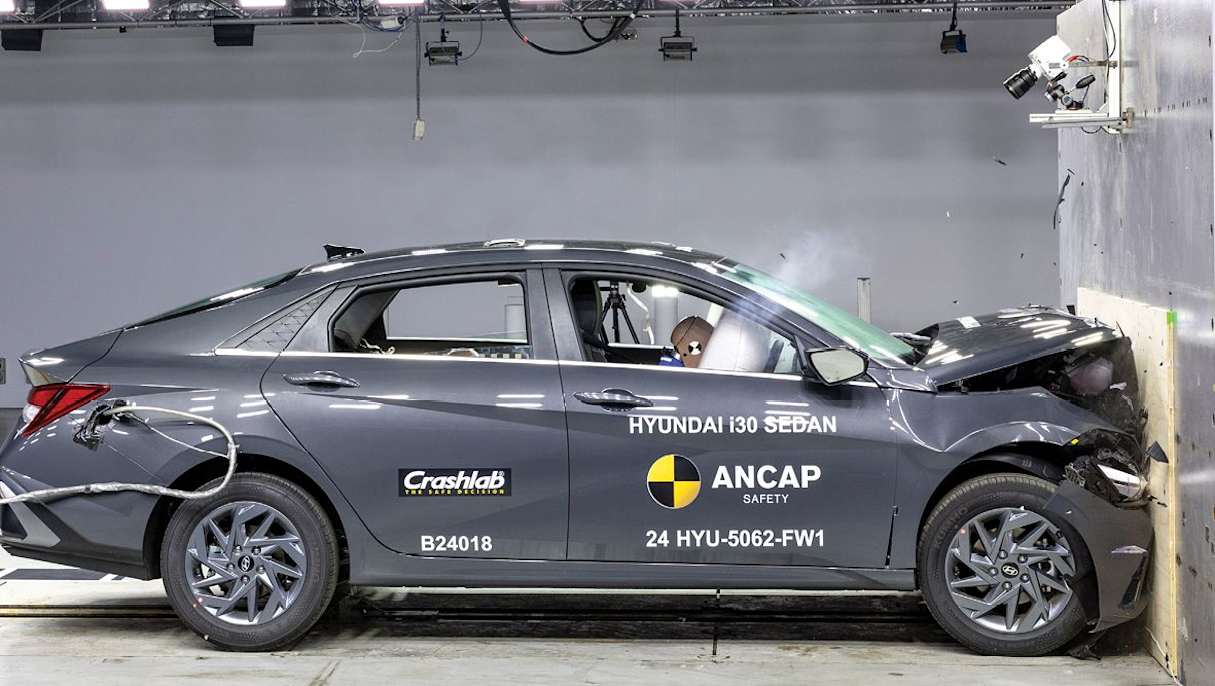The Australasian New Car Assessment Program (ANCAP) has handed down a three-star safety rating to the Hyundai i30 sedan range.
Tested according to ANCAP’s latest safety protocols, valid from 2023-2025, the rating will apply to i30 sedans built from October 30 last year and onwards, which is when Hyundai began producing a hybrid variant for the Australian market.
The three-star rating means the i30 sedan falls short on safety scores when compared to key rivals such as the Toyota Corolla sedan, Mazda 3 and Kia Cerato, which all carry five-star ratings.
All were tested to less stringent protocols, though. The Corolla was tested to 2018 protocols, while the Mazda 3 and Kia Cerato were tested to 2019 protocols.
The current generation of i30 Sedan was released in Australia in October 2020, four years ago. The i30 hatch retains its 2017 date-stamped five-star ANCAP safety rating.
ANCAP updates its protocols regularly to encourage automakers to advance their safety systems, with the latest protocols placing a greater emphasis on advanced driver-assistance systems.
ANCAP’s assessment scores delivered a relatively high ranking in the field of Child Occupant Protection for the i30 sedan.

It received a score of 81 per cent thanks to 'Good' protection of critical body parts in the frontal offset and side impact crash tests.
That was followed by a 71 per cent score for Adult Occupant Protection, with its strongest performance being found in the oblique pole and full width frontal crash tests. A good performance is usually close to 90 per cent, though.
Where the i30 fell short was in the safety assist category, with ANCAP limiting the sedan to three stars overall due to its lack of advanced autonomous emergency braking (AEB) capabilities and lack of blind-spot monitoring as standard.
Without those features the i30 was also limited to a Vulnerable Road User Protection score of 63 per cent.

Carla Hoorweg, ANCAP Chief Executive Officer, said other automakers should look at Hyundai’s score as a lesson to upgrade safety systems when embarking on a model refresh.
“The Australian Government’s recent New Vehicle Emissions Standards (NVES) is helping to provide vehicle manufacturers with the confidence to introduce more alternative-powered models into the Australian market, yet we had hoped Hyundai would have used this mid-cycle facelift opportunity to elevate the safety performance of the i30 Sedan,” said Hoorweg.
“Hyundai has shown that [it] can deliver five-star safety, and we believe the i30 Sedan could achieve this with the right safety enhancements. Smaller vehicles are inherently more vulnerable due to their size, so it’s particularly important for manufacturers to prioritise safety to protect occupants and other road users.”





.jpg)


.jpg)
.jpg)
.jpg)

.jpg)

.jpg)





.jpg)
.jpg)
.jpg)

.jpg)
.jpg)



.jpg)